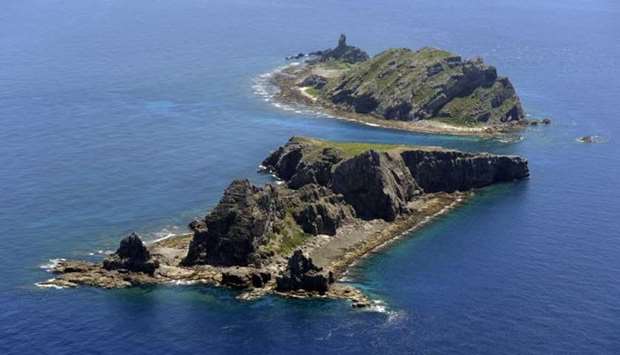A war of words over ownership of a group of tiny islands in the sea between Japan and South Korea spilled over to the Olympics again as Tokyo on Wednesday criticised Seoul's complaint over the labelling of a map of Japan on the Tokyo Games' website.
The neighbours are already at loggerheads over Japan's export curbs on high-tech materials bound for South Korea, as well as the issue of compensation of South Koreans forced to work for Japanese companies during World War Two.Japan's top government spokesman said South Korea had lodged a formal complaint that he called absolutely unacceptable, in view of the government's stance that the islands, which it calls Takeshima, belong to Japan.
Seoul also objects to the labelling of the sea between the neighbours solely as the Sea of Japan, preferring its own designation, the East Sea.
"We communicated (to South Korea) that their position is absolutely unacceptable," Chief Cabinet Secretary Yoshihide Suga told a news conference, adding that the state of relations was "very severe".
South Korea's foreign ministry did not have an immediate comment.
The two nations had a similar altercation at the winter Olympics, held in South Korea's county of Pyeongchang last year.
Ahead of that event, Japan protested at the inclusion of the islands, called Dokdo in South Korea, on a flag depicting a unified Korean peninsula.
Athletes from North and South Korea marched together under the flag of white and pale blue at the opening ceremony.
The islands were at the centre of a more serious clash on Tuesday, when both South Korea and Japan responded to what they saw as a violation of their air space near the islands by Russian and Chinese military planes.
Seoul, which controls the islands, fired hundreds of warning shots, and both countries scrambled jets to intercept the Russo-Chinese mission.
Ties between Japan and South Korea have often been fraught over their shared history, stemming from Japan's often brutal colonisation of the Korean peninsula between 1910 and 1945. (Reporting by Kaori Kaneko; Editing by Chang-Ran Kim and Clarence Fernandez)

